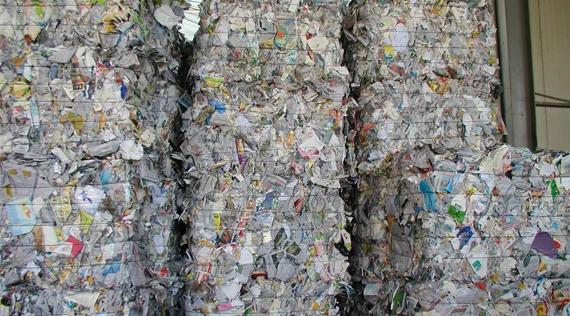
SEATTLE (Scrap Monster): The report released by the United Nations (UN) says that marine debris, mainly comprised of plastics, continues to cause serious harm to hundreds of animal species. Also, they debris is found to have caused serious losses to economies of many world countries.
According to the report titled “Marine Debris: Understanding, Preventing and Mitigating the Significant Adverse Impacts on Marine and Coastal Biodiversity”, the number of species affected by marine debris has increased from 663 in 2012 to as high as 817. In addition, this waste has caused threat to human health and well-being. Five of the most common type of mariner debris is made of plastics-food wrappers, bottle caps, straws, grocery bags and beverage bottles. The report was launched on the sidelines of the COP13 UN Biodiversity Conference held Dec 2nd to 17th in Cancun, Mexico.
Marine debris is a key environmental issue at the global level and a major threat to marine and coastal biodiversity. Three-quarters of all marine debris is plastic, a persistent and potentially hazardous pollutant, which fragments into microplastics that can be taken up by a wide range of marine organisms. The use of plastics continues to grow, with global production expected to rise markedly over the next few decades in order to meet demand. Incidentally, annual plastics production has jumped several folds over the past 60 years from just over 1.5 million tonnes in 1950’s to 288 million tonnes in 2012. As per estimates, 192 coastal countries generated a total of 275 million tonnes of plastic waste in 2010, out of which approximately 2-5% entered the marine environment.
Plastic materials are a particular cause for concern due to their persistence and inherent or acquired toxicity. Plastics are found to be potentially toxic by themselves or are capable of absorbing other toxic pollutants. Discarded plastics degrade and fragment into millions of microplastic pieces, enabling them to be taken up by a wide range of marine organisms. The continual fragmentation of plastic debris items results in accumulation of microplastic debris in the marine environment. A recent study of the North Pacific Subtropical Gyre had indicated that the abundance and mass of microplastics has increased by two orders of magnitude since the 1970s. The plastics originating from land-based sources make up most of the marine debris in the oceans, according to the study report.
The report states that a key approach in addressing marine debris is to prevent items becoming debris in the first place. It recommends various solutions to address plastic marine debris such as reduction in material produced and reuse of items, proper recycling of end-of-life items, and design stage techniques aimed at minimizing overall environmental footprint of plastic products. In addition, efforts are needed to support research and development of non-toxic, compostable and fully-biodegradable alternatives to conventional plastics.
According to the UN report, marine debris has also led to negative social and economic impacts for society. Various types of marine debris have led to substantial losses for industries such as commercial fishing, shipping, recreation and tourism. For instance, Asia Pacific Economic Cooperation member economies have lost in excess of $1 billion per annum due to the impacts of marine debris.
| Copper Scrap View All | |
| Alternator | 0.32 (0) |
| #1 Copper Bare Bright | 3.76 (-0.01) |
| Aluminum Scrap View All | |
| 356 Aluminum Wheels (Clean) | 0.73 (0) |
| 6061 Extrusions | 0.64 (0) |
| Steel Scrap View All | |
| #1 Bundle | 460.00 (-15) |
| #1 Busheling | 480.00 (-15) |
| Electronics Scrap View All | |